Veggie giants: Meet six of the biggest players in SA’s horticulture industry, and how they plan to keep growing during a pandemic
Many businesses are struggling in a post-COVID world but SA’s horticulture sector is booming. Here we profile six of the biggest players in a $1 billion industry that is growing rapidly.
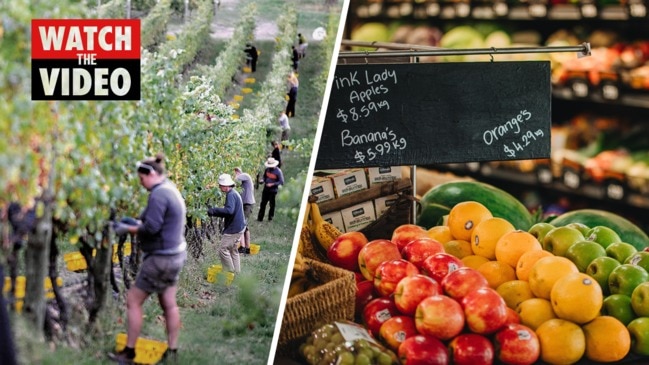
SA Business
Don't miss out on the headlines from SA Business. Followed categories will be added to My News.
- Who owns SA’s farms? Our major agriculture players revealed
- Worker shortage could lift fruit and veg prices by 60pc
Horticulture is the fastest growing sector within agriculture, contributing $1 billion to South Australia’s economy annually, and there are plans to grow that figure to more than $1.5 billion by 2030.
AUSVEG SA chief executive Jordan Brooke-Barnett said SA is home to world-standard horticultural enterprises, many of which are growing and providing a jobs boon to the state.
“Many of our businesses are growing significantly, requiring advanced skills and engineering expertise to operate complex modern growing operations,” he said.
Vegetable production makes up the majority of horticultural value in SA.
“AUSVEG SA has a target of working with government to grow our sector to $1 billion in value alone by 2030 and horticulture to over $1.5 billion,” he said.
Key specialities of the South Australian horticulture industry include greenhouse produce like tomatoes, capsicums and cucumbers – worth $300 million a year – and potatoes, onions and carrots, which are also worth a combined $300 million a year.
“South Australia produces around 80 per cent of Australia’s fresh market potatoes and is a leading producer of carrots and onions, mainly under pivot in the Riverland, Mallee and South East,” Mr Brooke-Barnett said.
The state is also home to the largest protected cropping (ie greenhouse) production area in the Southern Hemisphere, which is mainly situated around the Northern Adelaide Plains region.
The Advertiser spoke to some of the top industry leaders in SA about their businesses, their tips for success and challenges in a post-COVID world.

SA HORTICULTURAL ENTERPRISES
Pye Group
Location: Zerella Fresh is the Pye Group’s main company, with its headquarters at Virginia. The company’s other main base is at Parilla, with farms spread across the southern part of South Australia and in Victoria.
What do they grow or produce: 120,000 tonnes of potatoes, 40,000 tonnes of carrots and 50,000 tonnes of onions a year. The business includes 32,000ha across 30 farms in South Australia and Victoria.
Annual turnover: $100 million.
Countries they export to: Sales are mostly domestic, with some exports to Asia.
Major suppliers to: Major supermarkets, independent supermarkets and processing companies including Smith’s and McCain Foods.
Tip for success: Our company motto is think big and keep it simple – managing director Mark Pye.
Biggest challenge post-COVID: The hit to food services, including pubs and clubs, as well as airlines and shipping lines. Luckily, supermarket trade is going pretty well. (Mark Pye)
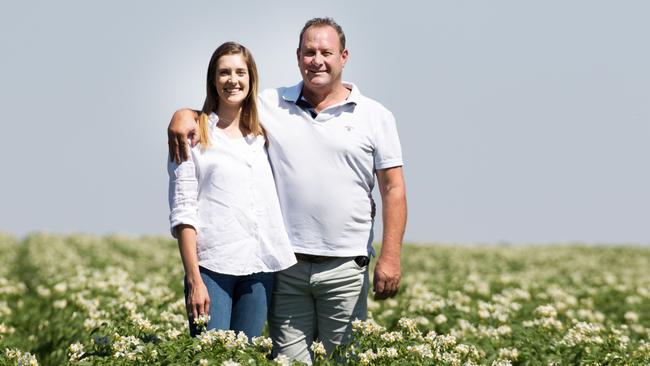
T Musolino & Co
Location: Virginia.
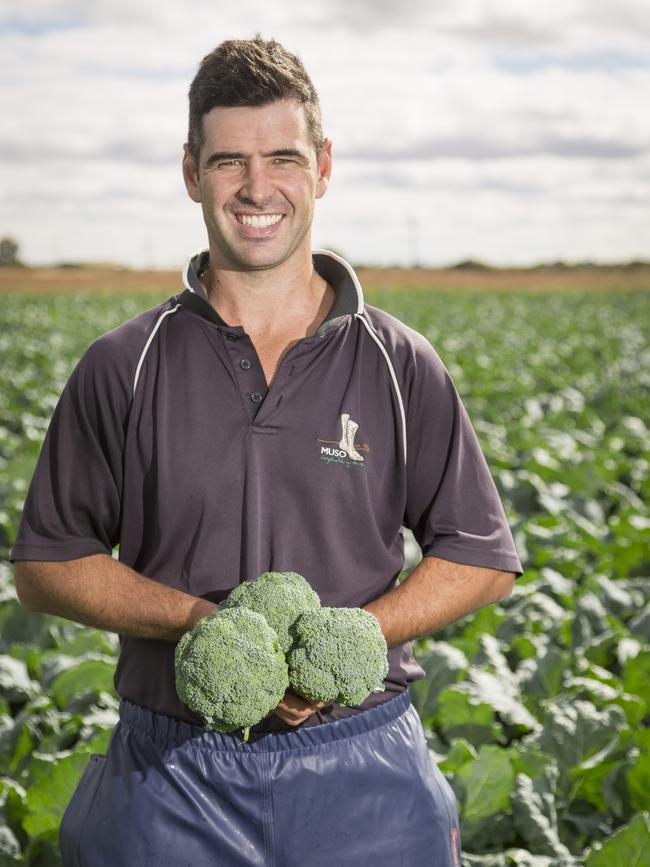
What do they grow or produce: Cauliflower, cabbage, broccoli and iceberg lettuce. The business also value-adds through its Healthy Heart Produce range, which includes zucchini spaghetti and cauliflower rice.
Annual turnover: Undisclosed.
Countries they export to: Singapore, Malaysia, Vietnam, Hong Kong and South Korea
Major suppliers to: Woolworths and Drakes are the two biggest local markets, but also selling to fruit and vegetables shops across South Australia.
Tip for success: Our motto has always been to do the hard work and give the customer more than they expect – general manager Chris Musolino.
Biggest challenge post-COVID: For us, COVID has actually increased our demand – it was crazy there for a while, with five times our normal Christmas sales. Our biggest ongoing issues are labour, electricity pricing and the cost of inputs going up. (Chris Musolino)
Marrone Fresh
Location: Wash and pack plant is located at Penfield Gardens, with farming land on the Adelaide Plains and at Naracoorte.
What do they grow or produce: Root vegetables including swede, turnip, parsnip and Chinese radish. Also bunch lines, including silverbeet and bunch beetroot, and pre-packaged lines such as soup packs.
Annual turnover: More than $10 million.
Countries they export to: Malaysia and Singapore.
Major suppliers to: Contracts with chain stores (Woolworths and Coles) nationally, as well as supplying to independent supermarkets. Also selling to wholesalers through various produce markets.
Tip for success: We’re a family business that was started 30 years ago, but our focus in the last couple of years has been moving away from being a small family operation to a more corporate business. So we’re always looking ahead at succession planning – head sales and production manager Bianca Marrone
Biggest challenge post-COVID: We have had a fair increase in demand but finding labour, lack of water and the high cost of water is always challenging. (Bianca Marrone)
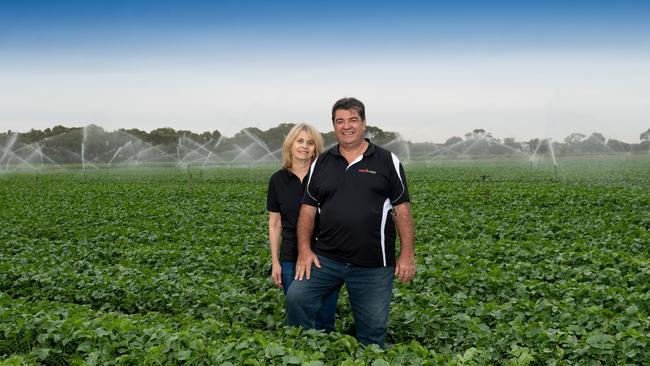
Pendleton Olive Estate
Location: Olive groves at Keith and Coonalpyn, with a processing plant at Keith and office and warehouse in Adelaide. The company’s olive groves consist of 240,000 trees and Pendleton has more than 1.2 million litres of temperature-controlled storage capacity.
What do they grow or produce: Olive oil, along with dukkah and vinegars.
Annual turnover: Undisclosed.
Countries they export to: China, Singapore and Malaysia.
Major suppliers to: Independent supermarkets, including Foodland, along with fruit and vegetable stores and the food service industry.
Tip for success: Providing a consistent, quality product is the big one for us. Consumers have become much more aware of what they’re getting when buying olive oil. With food service, chefs want to know they’re getting the same quality and flavour every time. There is natural variation in olive oil and we manage that by having significant storage and growing a number of different olive varieties – executive director Nick Whiting.
Biggest challenge post-COVID: There’s always competition from cheaper imported product that doesn’t necessarily have the same quality. (Nick Whiting)
Ceravolo Orchards and Ashton Valley Fresh
Location: Based in Ashton with six farms across the Adelaide Hills and one on the Fleurieu Peninsula. Also sharefarming in Queensland to ensure a year-long supply of strawberries.
What do they grow or produce: Ceravolo Orchards produce a range of fruits across 280 hectares including apples, pears, cherries and strawberries. Ashton Valley Fresh produces more than 3 million litres of juice annually for the wholesale and retail markets.
Annual turnover: $28 million.
Countries they export to: Primarily domestic but the business has set up an undercover cropping system at Myponga for cherry production, with the plan to export premium grade cherries in the future.
Major suppliers to: Coles, Drakes, Tony & Marks, as well as greengrocers.
Tip for success: Have a willingness to invest in technology and move with the times. Our ethos is to always look forward – not over our shoulder at what everyone else is doing. The people we have working alongside us in our business are also a huge part of our success, as well as the willingness of South Australians to support other South Australians – business development manager Joyce Ceravolo.
Biggest challenge post-COVID: We have an integrated business (Lot 100 – a restaurant and multi-cellar door) and keeping it operating through COVID has been a challenge. While it’s great that people are eating at home more and buying more fresh produce, that’s also presented a challenge to the service sector (Joyce Ceravolo)
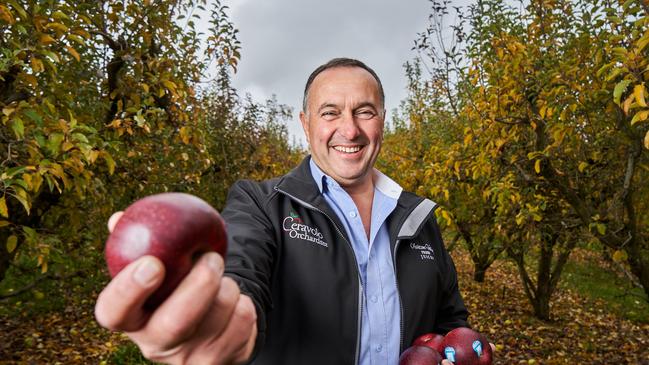
P’Petual Holdings
Location: Buckland Park
What do they grow or produce: The three main crops are tomato, mini-cucumber and eggplant, with a small area for capsicum production.
Annual turnover: $17 million.
Countries they export to: Singapore.
Major suppliers to: Woolworths, Foodland and fruit and vegetable stores across South Australia.
Tip for success: Having a care circle is our motto – by looking after our staff, they in turn will look after our crops. We also believe if we look after our customers, they’ll look after us – general manager Henry Liu.
Biggest challenge post-COVID: There’s always price pressures but I think you need to look at every challenge as an opportunity (Henry Liu)
